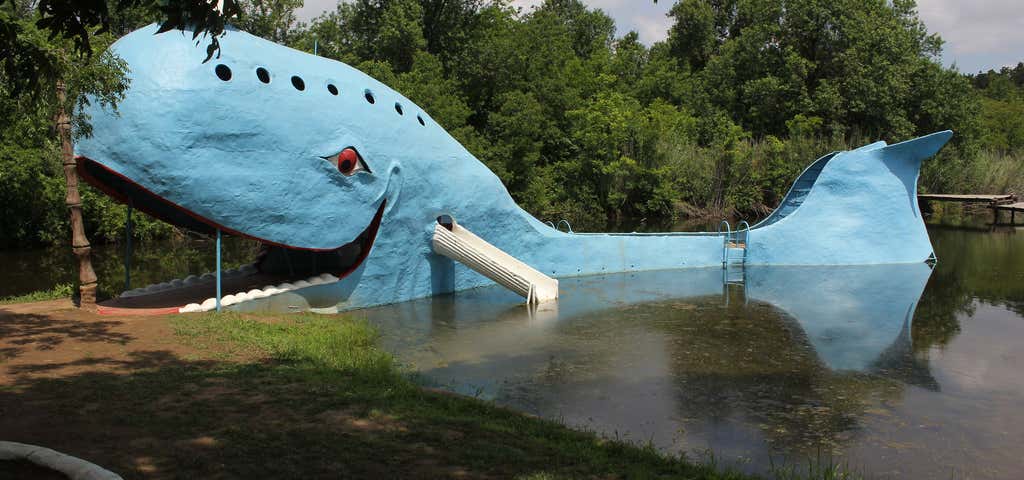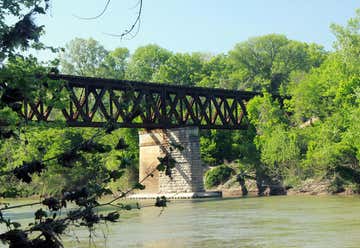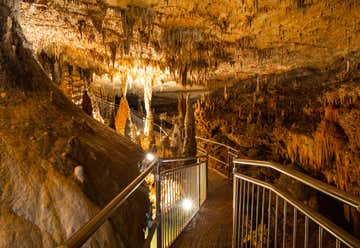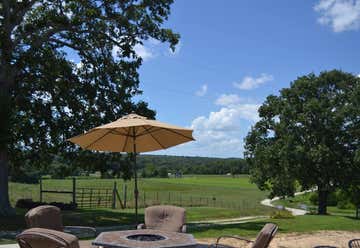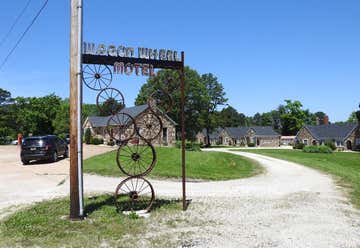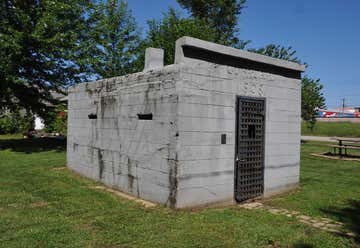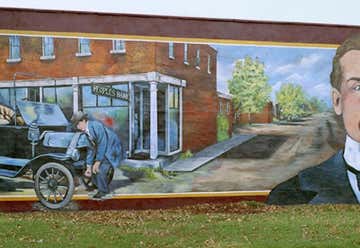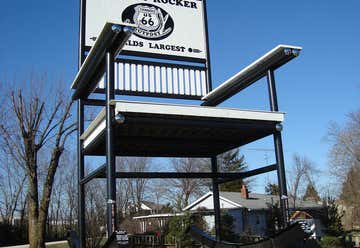Next up is St. Louis, Missouri, to Tulsa, Oklahoma, a stretch that some travelers consider the heart of Route 66. It’s where east meets west, linking up the Midwest with the West Coast. Much of this stretch is on I-44, which means lots of exits and county roads, but the scenery is often beautiful. When possible, we’ll point out places where you can hop on and off the original parts of Route 66.
Twenty miles southeast of Saint Clair, you’ll find the Morse Mill Hotel, an alleged vortex of paranormal activity. This pre-Civil War hotel was constructed in 1816 as a simple farmhouse. Forty years later, John Morse turned it into a four-story building made of maple, oak, cypress, and limestone. During the 1920s and ‘30s, the hotel was buzzing with activity as the place where the wealthy citizens of Saint Louis escaped for a weekend getaway. Famous—and infamous—guests came from all over the world and included Charles Lindbergh and Al Capone. Today, guests report hearing phantom footsteps and feeling apparitions brush up against them.
If you’re traveling during the summer months, this nice, cool detour will help you escape the heat. The 4.6-mile-long cave system is one of the Ozarks’ coolest (literally and figuratively) natural wonders, as well as an archaeological hotbed of Native American artifacts.
The Jesse James Wax Museum in Stanton is an interactive walking museum that takes visitors through the life and mysterious death of the notorious outlaw. The gift shop is loaded with kitschy James memorabilia. The nearby Riverside Wildlife Center, full of snakes and alligators, is also worth a visit.
Onondaga Cave State Park is less famous—and less crowded—than Meramec Caverns, but equally impressive. Massive stalagmites and stalactites drip from the ceiling and rise up from the floor, and guided tours take visitors throughout the underground labyrinth. Don’t miss the panoramic vista points where you can see views of the Meramec River.
Enjoy a wine tasting at Belmont Vineyards, about 8 miles down the road from Onondaga Cave State Park. This family-run business is a hidden gem in the Ozarks, located between downtown Cuba and Leasburg along historic Route 66 (an easy on-off from I-44). Belmont frequently features live music on weekends, and visitors can enjoy wine tastings and good food with a beautiful view.
Cuba, Missouri, United States
Cuba, Missouri, nicknamed “Route 66 Mural City,” will make you feel as if you’ve traveled back in time. The town was founded in 1857 and named after the island nation just south of Florida. Over the years, Cuba has seen its fair share of famous visitors—including Bette Davis, Amelia Earhart, and President Harry S. Truman—many of whom are featured in the town’s murals.
If you need a break from driving and sightseeing, catch a flick at the 19 Drive-In. The classic theater opened in 1955 and is still operating seasonally, between March and October.
In Cuba you’ll find the iconic Wagon Wheel Motel, a 19-room historic Route 66 motel in operation since 1936. Don’t miss nearby vintage gas stations such as the Old Conoco Service Station and a Phillips 66 station.
On the southwest corner of Prairie Street and South Main Street, you’ll find a concrete block that served as the town’s jail from 1908 to 1954. Today, the building is furnished with traditional prison furniture, including a wood cot, desk, and stove.
There are so many Route 66 icons to see and experience while in Cuba, but it’s absolutely essential to take a tour of the famous Route 66 Viva Cuba Murals. Take a journey through the town’s history via 12 outdoor murals. For a more in-depth look, a narrated bus tour departs from the Cuba Visitor Center. A self-guided map is available at cubamomurals.com.
The 40-feet-tall rocking chair in Fanning, Missouri, was once Guinness-certified as the World's Largest Rocker. In 2015, it was bumped down to second place by an even larger chair in Casey, Illinois.
In Waynesville you’ll find the Pulaski County Courthouse, a beautiful two-story Romanesque Revival-style building built in 1903. Today, the courthouse serves as a museum, and is a favorite photo op for history and architecture buffs.
Ending this leg at the Blue Whale makes for a Route 66 highlight, but you’ve still got plenty of attractions—and more than half of the Mother Road—ahead of you. No longer the road of desperation as described by John Steinbeck in The Grapes of Wrath, you’ll nonetheless be following in the footsteps (or rather, wheel ruts) of thousands of Okies who once traveled West along Route 66 in search of greener pastures. There are more driveable portions of the old Mother Road in Oklahoma than in any other state, so get comfortable and don’t forget to stick your hand (or head) out the window to enjoy the wind as it comes sweeping down the plain.
Banner Photo Credit: Flickr/Nicolas Henderson
